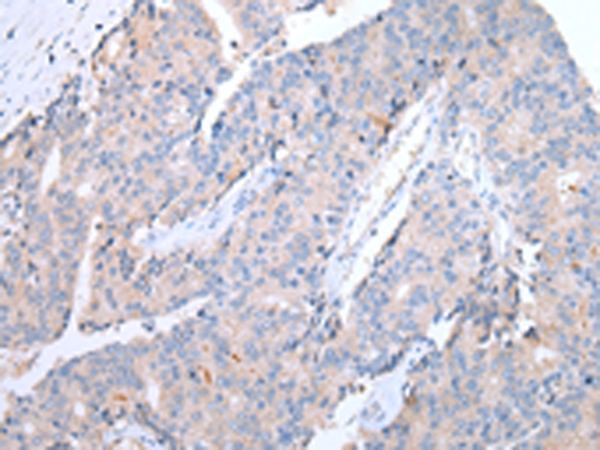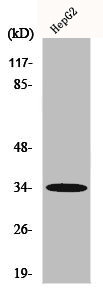Chemokine Receptor D6 antibody
GTX21658
ApplicationsFlow Cytometry, Western Blot, ELISA, ImmunoHistoChemistry, ImmunoHistoChemistry Paraffin, Neutralisation/Blocking
Product group Antibodies
ReactivityHuman, Mouse
TargetACKR2
Overview
- SupplierGeneTex
- Product NameChemokine Receptor D6 antibody
- Delivery Days Customer9
- Application Supplier NoteWB: 1:500. IHC-P: 1:125. FACS: 2-6microl/106cells/50-100microl. ELISA: 1:50,000. *Optimal dilutions/concentrations should be determined by the researcher.Not tested in other applications.
- ApplicationsFlow Cytometry, Western Blot, ELISA, ImmunoHistoChemistry, ImmunoHistoChemistry Paraffin, Neutralisation/Blocking
- CertificationResearch Use Only
- ClonalityPolyclonal
- ConjugateUnconjugated
- Gene ID1238
- Target nameACKR2
- Target descriptionatypical chemokine receptor 2
- Target synonymsCCBP2, CCR10, CCR9, CMKBR9, D6, hD6, atypical chemokine receptor 2, C-C chemokine receptor D6, CC-chemokine-binding receptor JAB61, chemokine (C-C motif) receptor 9, chemokine (C-C) receptor 9, chemokine receptor CCR-10, chemokine receptor CCR-9, chemokine receptor D6, chemokine-binding protein 2, chemokine-binding protein D6
- HostGoat
- IsotypeIgG
- Protein IDO00590
- Protein NameAtypical chemokine receptor 2
- Scientific DescriptionThis gene encodes a beta chemokine receptor, which is predicted to be a seven transmembrane protein similar to G protein-coupled receptors. Chemokines and their receptor-mediated signal transduction are critical for the recruitment of effector immune cells to the inflammation site. This gene is expressed in a range of tissues and hemopoietic cells. The expression of this receptor in lymphatic endothelial cells and overexpression in vascular tumors suggested its function in chemokine-driven recirculation of leukocytes and possible chemokine effects on the development and growth of vascular tumors. This receptor appears to bind the majority of beta-chemokine family members; however, its specific function remains unknown. This gene is mapped to chromosome 3p21.3, a region that includes a cluster of chemokine receptor genes. [provided by RefSeq, Jul 2008]
- ReactivityHuman, Mouse
- Storage Instruction-20°C or -80°C,2°C to 8°C
- UNSPSC12352203
References
- Chang TM, Chiang YC, Lee CW, et al. CXCL14 promotes metastasis of non-small cell lung cancer through ACKR2-depended signaling pathway. Int J Biol Sci. 2023,19(5):1455-1470. doi: 10.7150/ijbs.79438Read this paper





